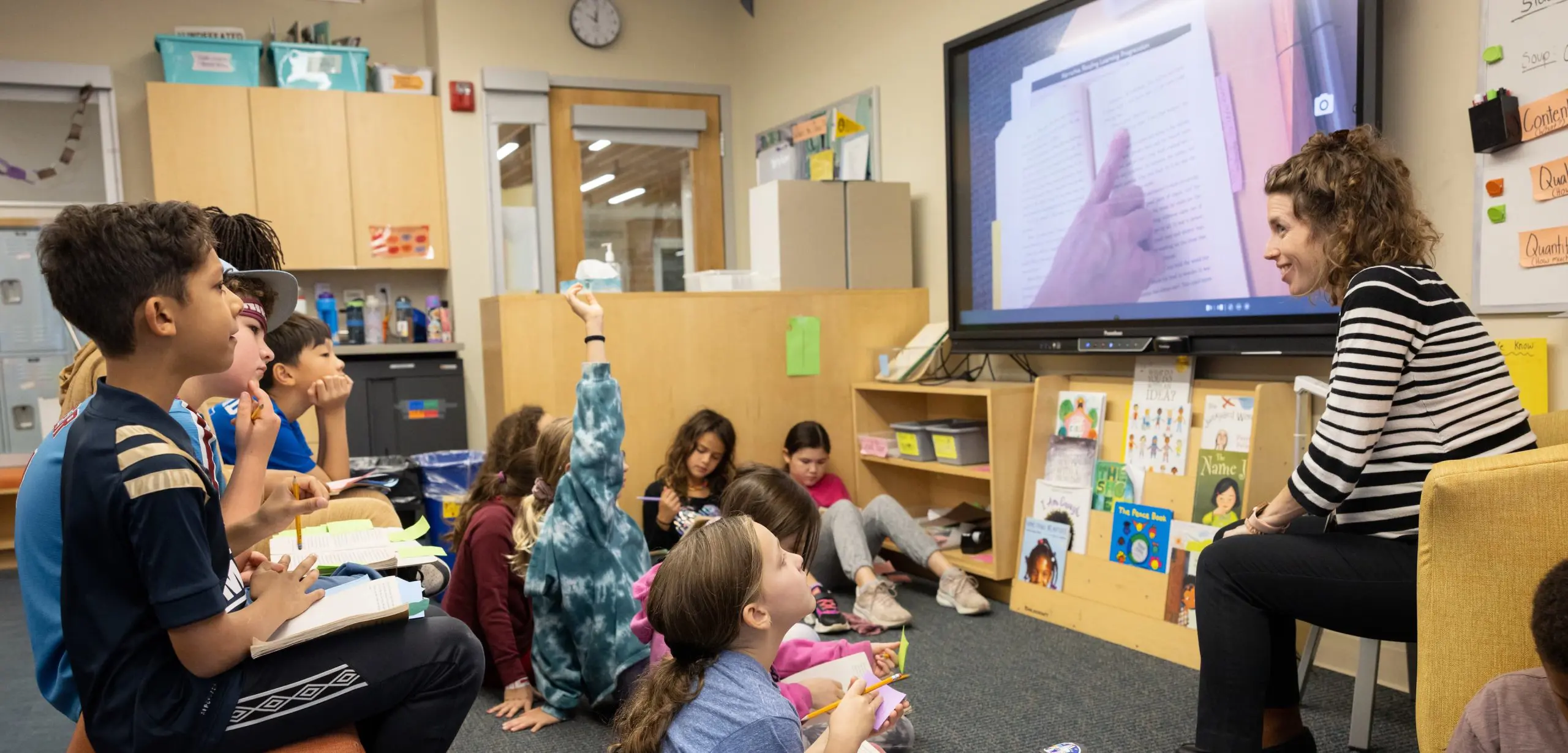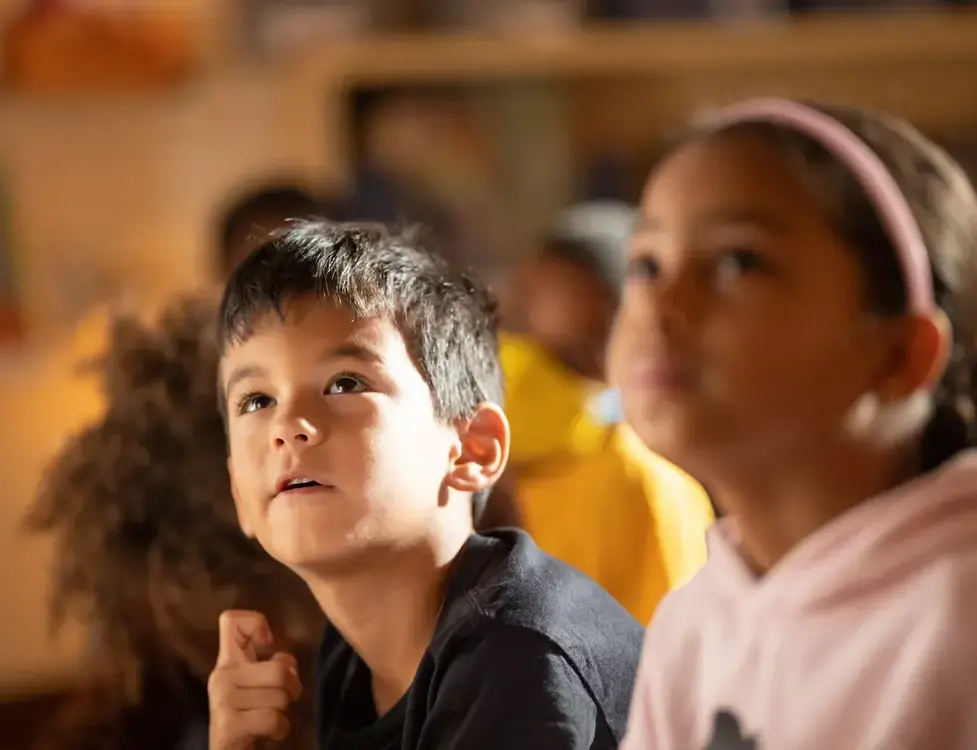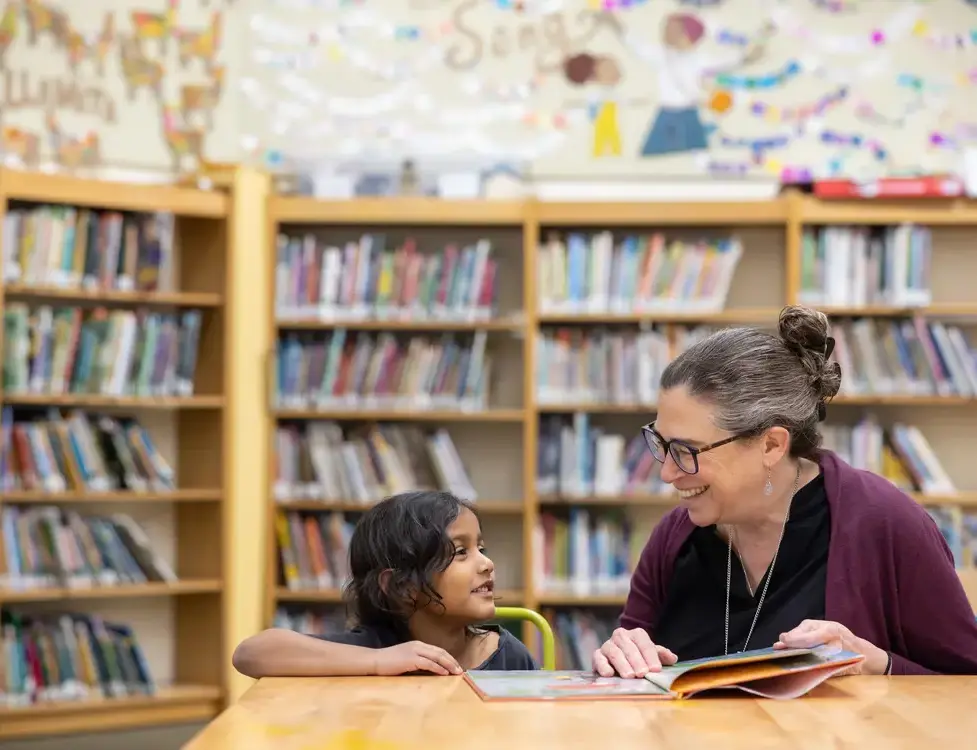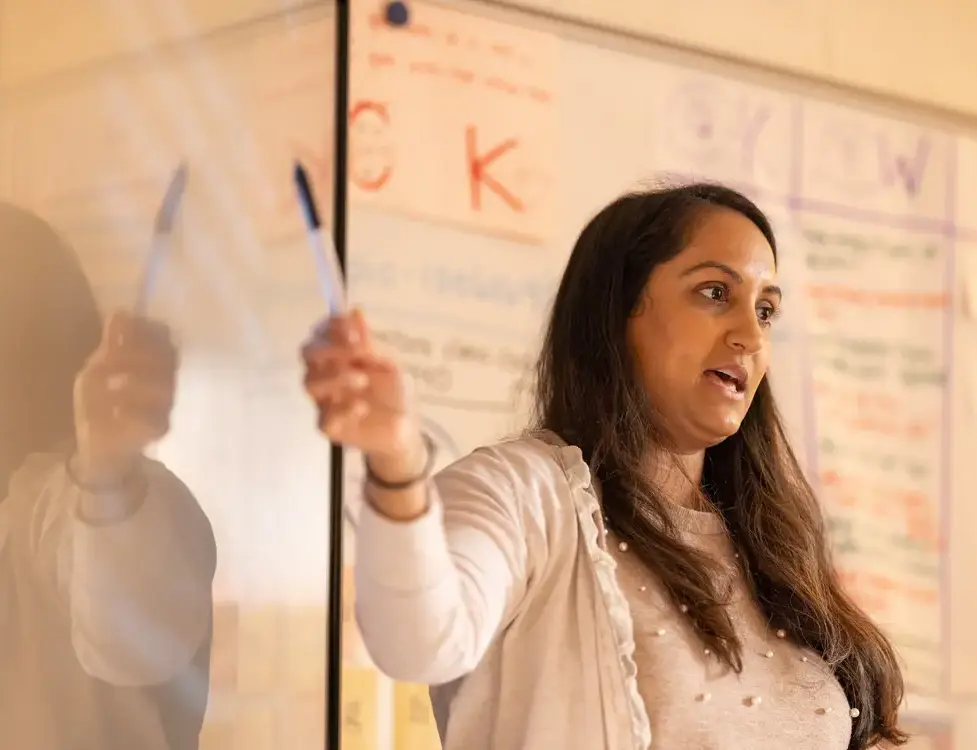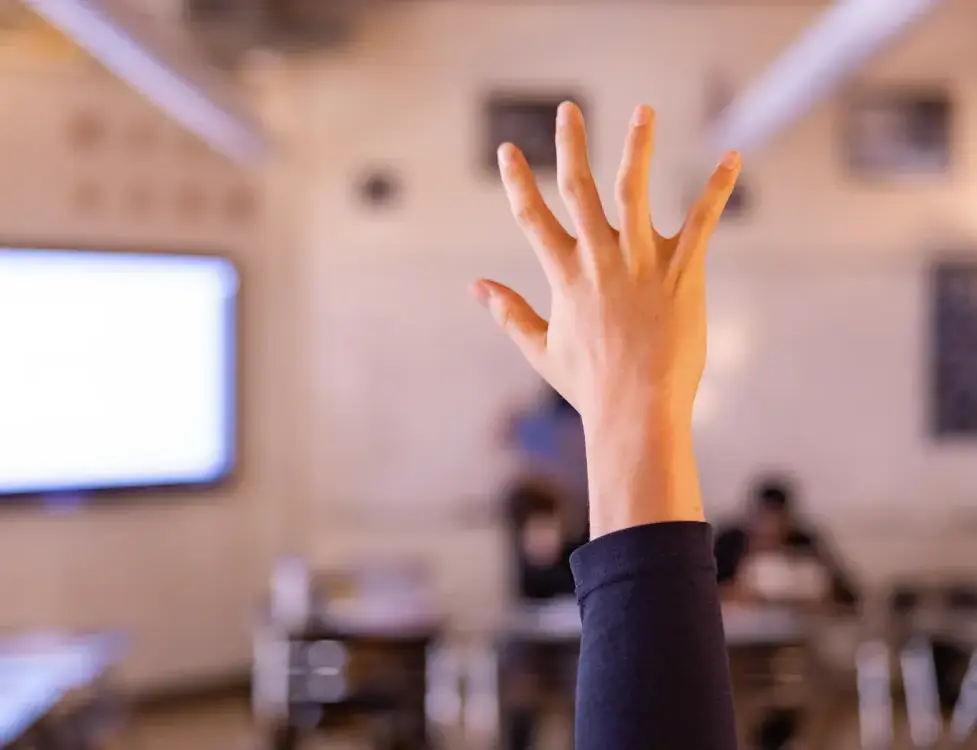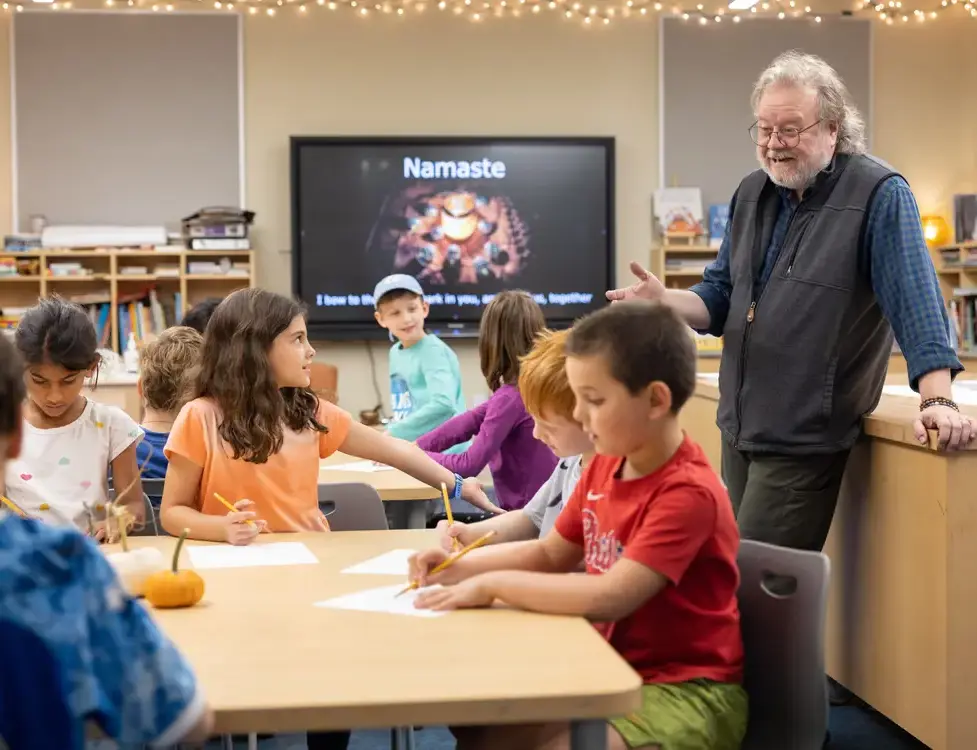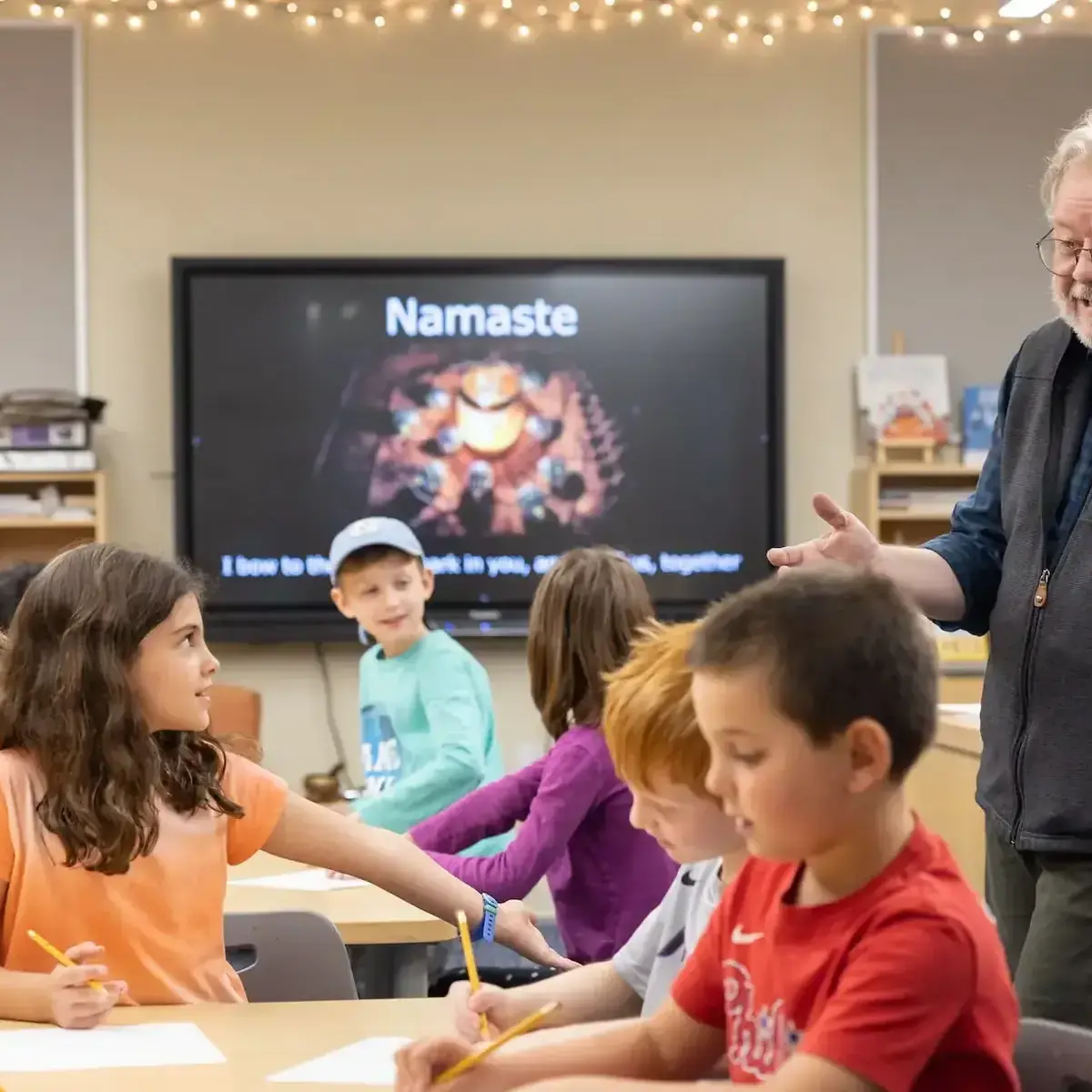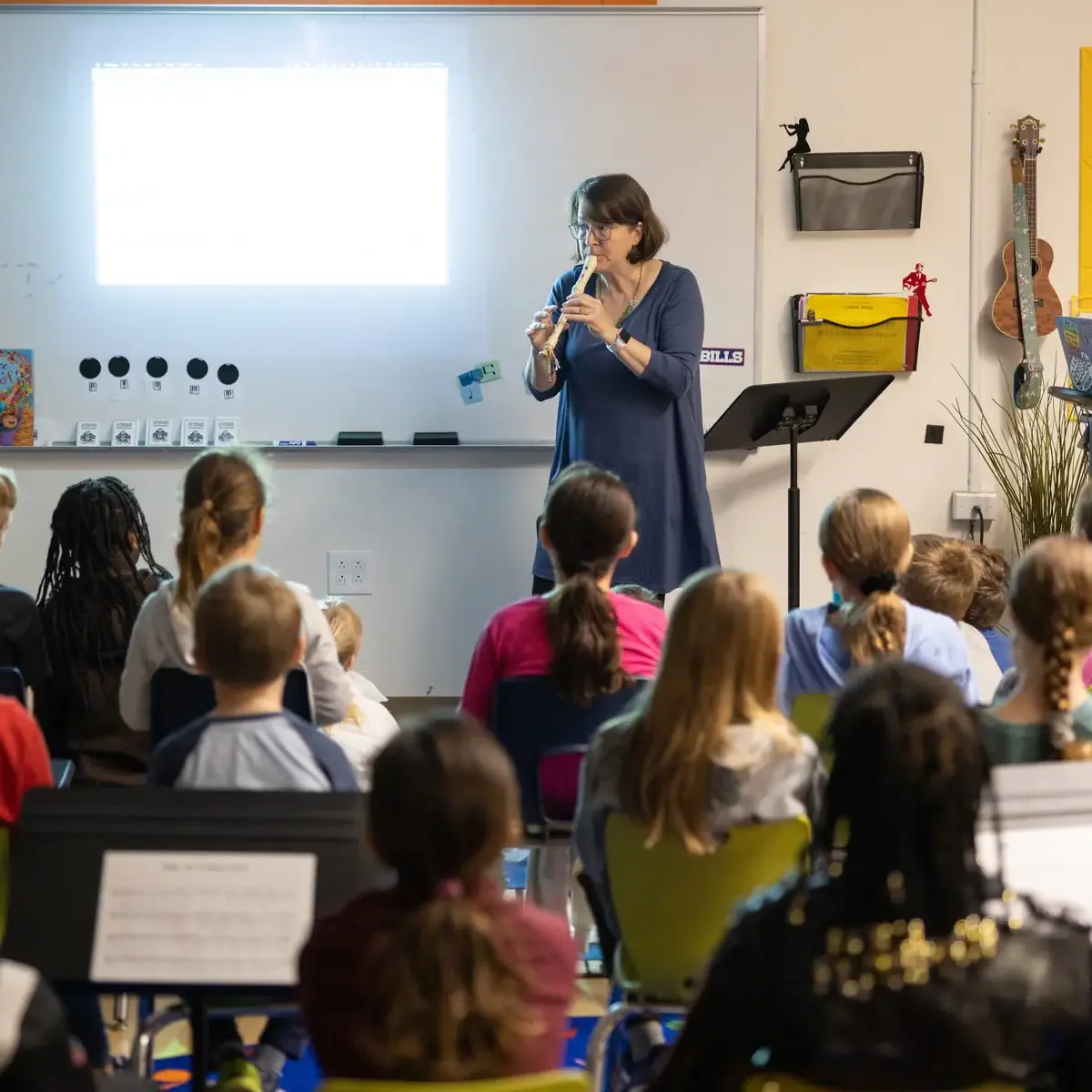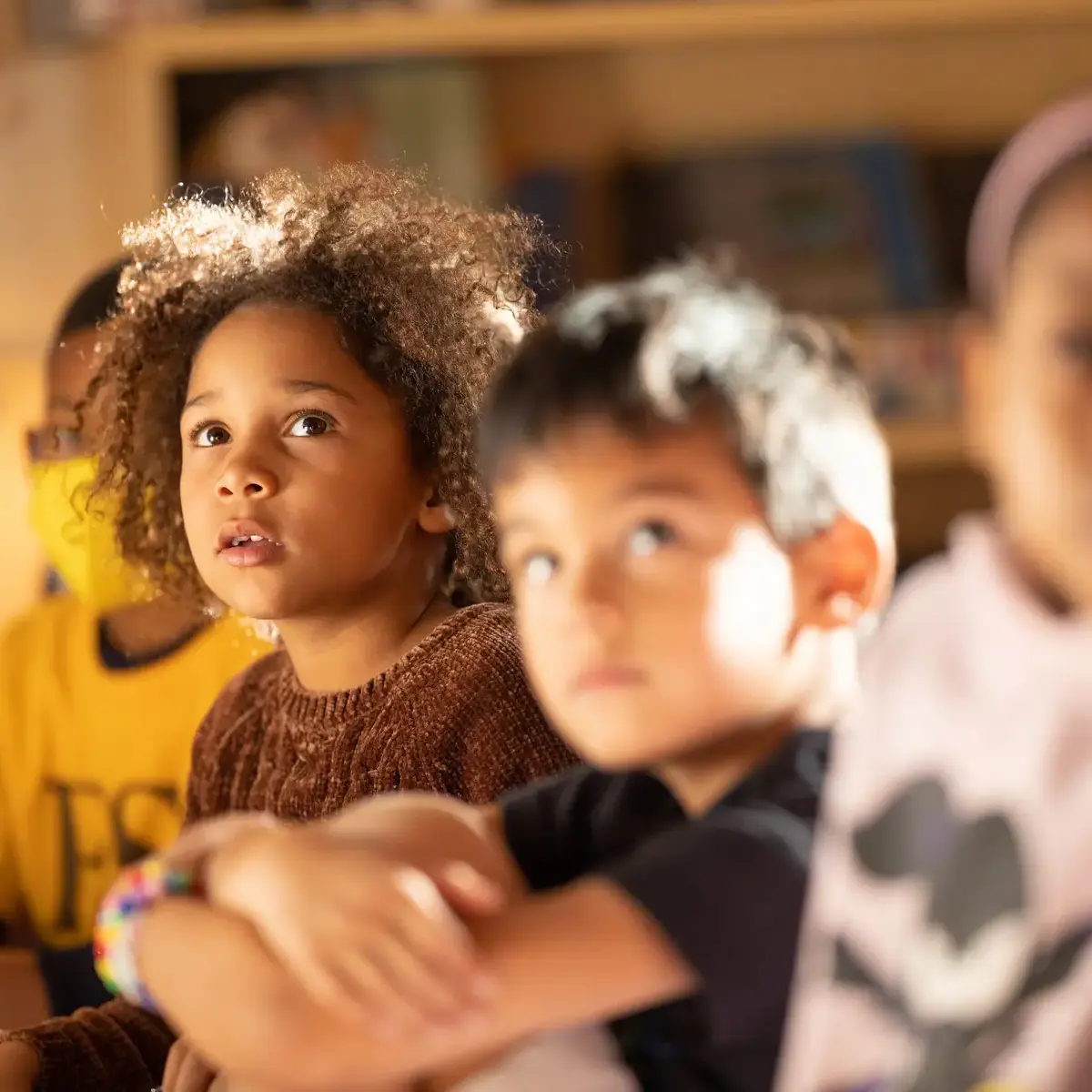At Friends Select, our lower school journey is enriched with distinctive programs and curricular highlights that elevate the learning experience.
In addition to their classroom academic subjects, lower school students go to specialist teachers for science, art, music, world language (Spanish or Mandarin), physical education (including swimming), and STEAM library, where students borrow books, listen to stories, learn to code, and build STEAM projects. Students enjoy partnerships with older students (and younger students once they reach 3rd or 4th grade). The whole lower school participates in Social Justice Day, which includes learning together about the theme for the year, working on a service project, and creating a collective artwork. More than half of our lower school students attend our After School Program (ASP) and/or our Vacation Care, which offer additional opportunities to learn, play, and explore the city.
We invite you to learn more about our lower school program. We hope you’ll visit so you can meet our wonderful team of educators and witness the dynamic learning that takes place here every day.
| English |
|---|
|
In lower school, we are building the foundational skills for a lifetime of reading and writing. We utilize the latest research in our instruction, making sure that students learn how to decode our written language, build fluency in their reading, and learn the content and language skills they need to comprehend both fiction and nonfiction texts. Students receive instruction at their “just right” level in a combination of whole group and small group instruction, as well as individualized “coaching.” The goal is to build joyful and skilled readers who will spend a lifetime reading for knowledge, enrichment, and pleasure. Our wrting program parallels our reading program. The youngest students learn the basics of letter formation and letter/sound correspondence, and use these skills to label drawings, create journal entries, and demonstrate their content learning. Students progress through the program learning how to communicate ideas clearly, writer’s craft techniques, and writing conventions (spelling, grammar, and punctuation). Students gain experience with different writing styles and genres, from personal narratives to nonfiction to persuasive essays. Students learn the writing process, how to take a piece from the idea stage, through multiple drafts, and finally editing and publishing. |
| History |
| History in Friends Select’s lower school aims to connect students to the world around them. Our lower school students study urban gardens, murals in Philadelphia, and inventors and inventions. We regularly visit Reading Terminal Market, JFK Plaza, Chinatown, Sister Cities Park, Philadelphia’s Magic Gardens, Schuylkill River Park (Taney), and other areas of interest to make classroom learning come alive. In third and fourth grade, students study American history and take advantage of our city setting to explore colonial America and the American Revolution. Classes visit the Constitution Center, Elfreth's Alley, Franklin Court, and other historical sites to directly experience "the power of place." Students view history through lenses of migration, class, status, wealth, education, access, and power that serve to broaden their study to other time periods and to connect to contemporary society and culture. |
| STEAM Library |
|
Friends Select’s library department is committed to providing a safe, inclusive, and welcoming space for all students, faculty, and staff. Our lower school, middle school, and upper school programs are dedicated to preparing students for the whole of life, by creating a dynamic learning environment that encourages intellectual curiosity, and empowers students to become lifelong learners, avid readers, creators, critical thinkers, and problem solvers. Librarians curate print and digital resources that reflect our school’s DEI and antiracist goals, support research and classroom subjects, and provide students with a wide range of independent reading choices. The library department program includes a variety of activities and learning experiences, including yearly author visits (both in-person and virtual) coding instruction, student-led book clubs, committees, etc. Students in grades pre-K to 4 meet in the Elizabeth Wallace STEAM Library for weekly scheduled classes designed to provide students with engaging, innovative, and creative learning opportunities that incorporate traditional library programming with STEAM-based lessons. The lower school librarian actively collaborates in the classroom with teachers to provide additional support and instruction in research and project-based design thinking activities. This can look like learning research and computer skills by making a Google Slides presentation of cryptids indigenous to North America, designing laser cut medallions based on the Zodiac medallions in Chinatown, or working collaboratively to write code that recreates Yayoi Kusama’s Obliteration Room. |
| Math |
|
Lower school mathematics focuses on building numeracy, conceptual understanding, problem-solving skills, fluency in computation, mental math, and a positive attitude and growth mindset. We utilize the Everyday Mathematics curriculum (kindergarten through fourth grade). Although we do emphasize fluency in math facts and operations, students learn the conceptual underpinnings that will allow them to excel in mathematics in middle school, upper school, and beyond. Pre-K and kindergarten students figure out how many classmates are present and absent, conduct surveys and report on their data, look for patterns in the number system and build an understanding of how to use those patterns to solve problems. First and second grade students learn to apply mathematical reasoning to real-world situations, develop fluency in addition and subtraction, hone their mental math skills, and begin to practice applying their knowledge to solve more complex, unfamiliar problems. Third and fourth grade students develop fluency in multiplication and division, solidify arithmetic skills, do more sophisticated data analysis, and begin the study of fractions and decimals that are so crucial to success in the pre-algebra years to come. Multi-step real world problems demand that students utilize all the mathematical skills they have built so far. Overall, in lower school, students learn to think like mathematicians, analyzing and understanding the geometrical and numerical patterns that help us to make sense of the world. |
| Physical Education |
| Physical education is vital, as study after study shows a strong correlation between physical activity and overall school success. According to the Centers for Disease Control and Prevention, “physical activity can impact cognitive skills and attitudes and academic behavior, all of which are important components of improved academic performance.” Lower school students are introduced to the physical education environment and fundamental movement skills. They participate in low-organized play with individual movement challenges and small group games. As students progress through lower school, they learn the rules and strategies necessary for participation in elementary games emphasizing safety. There is an emphasis on cooperation, conflict resolution, recognizing personal differences, and valuing the ability levels of others. |
| Science |
| Friends Select’s science department strives to nurture students’ inherent curiosity, provide students with opportunities to develop and answer questions about the natural and human-made world, and inspire students to be creative problem solvers, informed global citizens, and lifelong learners. The lower school science program aims to build a scientific foundation for students including both the practices of science and engaging content. Guided by our lower school science specialist, our pre-K through fourth grade students participate in the process of scientific inquiry by independently and collaboratively observing, measuring, classifying, predicting, testing, and communicating. Students are introduced to skills and concepts in a hands-on fashion, sequentially progressing from year to year, within the physical, life, and earth sciences. Additionally, for one trimester each year, students in second and third grades participate in laboratory classes taught at the Academy of Natural Sciences, where students learn about paleontology and freshwater ecosystems, areas in which the Academy is world-renowned. |
| World Languages |
| The world languages department offers instruction in the two languages that have, in addition to English, the widest cultural and economic reach in the 21st-century globe, Mandarin and Spanish. Both languages are offered from pre-kindergarten through fourth grade, and their curricula focus on the active command of these languages in everyday life. The world languages department aims to instill in students both linguistic competency and cross-cultural empathy. The process of learning a new language is a fundamental cognitive skill that sharpens the ability to understand the structure and vocabulary of one’s native language as well as the new language. The command of a new language is also a window into a new cultural tradition and worldview that expands the intellectual horizon of any student. The language curricula at Friends Select are designed to teach students both these linguistic hard skills and cultural soft skills over the course of multiple grades. Our students are exposed to the language of their choice from a very young age onward: both the Mandarin and the Spanish curricula are cumulative and incremental, and the linguistic complexity increases with every grade, as do the discussions about the cultural implications of the information that the students are exposed to in each language. |

